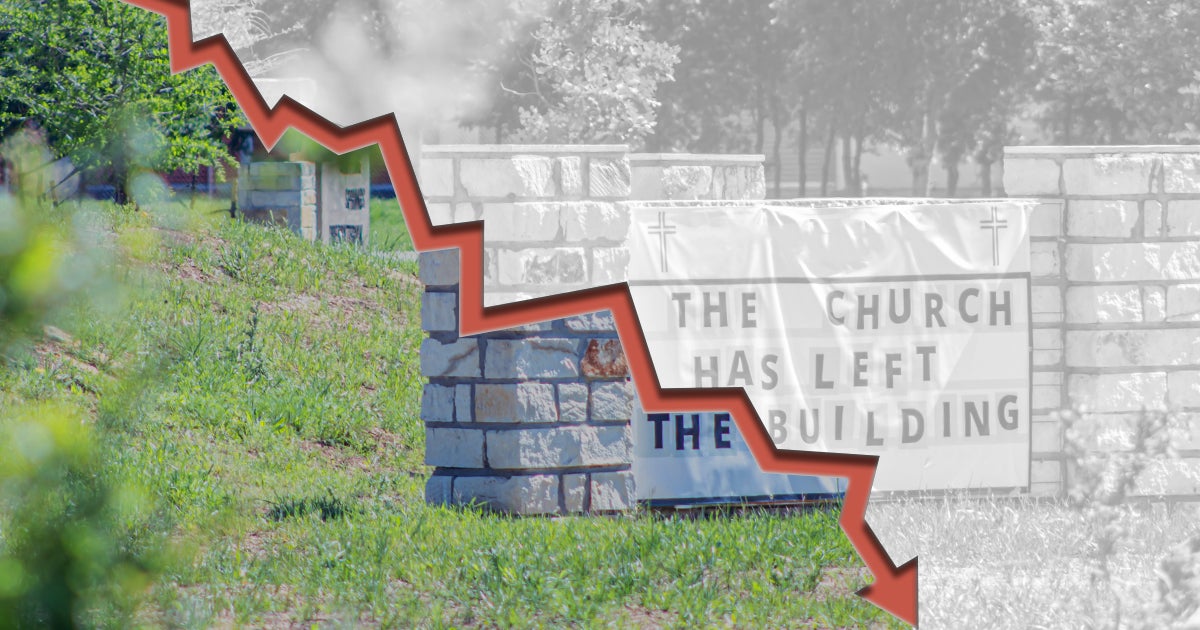
by Jorge Gomez • 6 min read
Christians could make up less than half of the U.S. population within a few decades, according to the Pew Research Center.
A recent report notes that since the 1990s, large numbers of Americans have left Christianity to join the growing ranks of adults who describe their religious identity as atheist, agnostic or “nothing in particular,” often referred to as the “nones.”
Pew estimates that in 2020, about 64% of Americans, including children, were Christian. But if current trends in religious affiliation continue, Christians would decline as a share of the population by a few percentage points per decade, dipping from 64% to below 50% by 2060, or even as low as 35% by 2070. On the other hand, “nones” would increase from the current 30% to a range between 34% and 52% of the country’s population. Pew estimates that “nones” are on track to comprise a majority of the population by 2070.
Pew’s research highlights something very important about religious freedom. Now, more than ever, Americans shouldn’t cave into the idea that faith and religious freedom are on the decline and therefore require less protection. Quite the opposite. The more it appears that Christians—and people of all faiths—find themselves in the minority, then the more robustly we should fight for and defend religious freedom.
A Nation That Protects Minority Voices
As America’s undergoes shifts in religious identity, we must be especially vigilant of opponents of faith and freedom prone to weaponize this trend to justify their attacks on our First Freedom. It’s not uncommon that some will point to the statistics above to radically claim that with less people identifying as Christian or religious there’s less of a need to protect religious freedom.
That logic misses the mark of what religious freedom is really about. It fails to see the real purpose and the tremendous value religious liberty brings to our country.
Let’s start with a fundamental truth: Religious freedom is a God-given right, one that doesn’t depend on the political whims of mankind or whoever holds power at a given moment. That also means this First Freedom doesn’t suddenly disappear or become less relevant depending on the responses to a survey on religious identity, affiliation or church attendance.
This is best illustrated by looking at the history of America’s founding. Remember, the first settlers who established the colonies came in search of religious freedom. Those who fled to the New World did so because they were themselves a minority persecuted for their religious beliefs by European tyrants and the popular, ruling majorities of their time.
Compared to the massive empire and the authoritarian rule of England’s monarchy, America’s Founders were a relatively small faction of freedom-loving “dissidents” who sought to establish a nation where they could worship God without being punished.
That’s why it’s almost impossible to separate religious freedom from the principle of protecting minority viewpoints.
Not only is the First Amendment a shield for religious freedom and people of faith, it’s also a safeguard for the rights of ALL Americans (religious or not) to believe and live according to their conscience. And this applies whether they hold beliefs that are popular, countervailing to the cultural majority or considered a minority.
Protecting One of Our Greatest Blessings: Religious Freedom
America’s religious landscape is changing, but this does not mean that our country’s longstanding commitment to religious freedom must change. The prospect that people of faith could soon be in the minority will surely bring challenges. At the same time, this presents an opportunity to uphold the principles and values on which our nation is built. We need religious liberty now more than ever.
From the start, America has been an exceptional place—a city upon a hill—that has set the standard for the world in protecting religious freedom. Our Founders risked their reputations, families and their very lives in a war for independence against the world’s greatest military power at the time. Their sacrifice left us with a tremendous legacy, a nation where future generations could live out their beliefs free from the heavy hand of a state-imposed religion.
America can keep being a beacon of freedom, and it starts with us being vigilant and continuing to fight for this incredible “blessing of liberty” bestowed to us by our Founders—the freedom to live out our faith, regardless of whether we are part of the majority or minority.
Religious liberty is special, unique and worth defending. It’s the bedrock of our free nation and a God-given freedom that never changes. Whether America includes one person of faith, one hundred or one hundred million believers, we’ll always have a duty to protect this fundamental freedom.